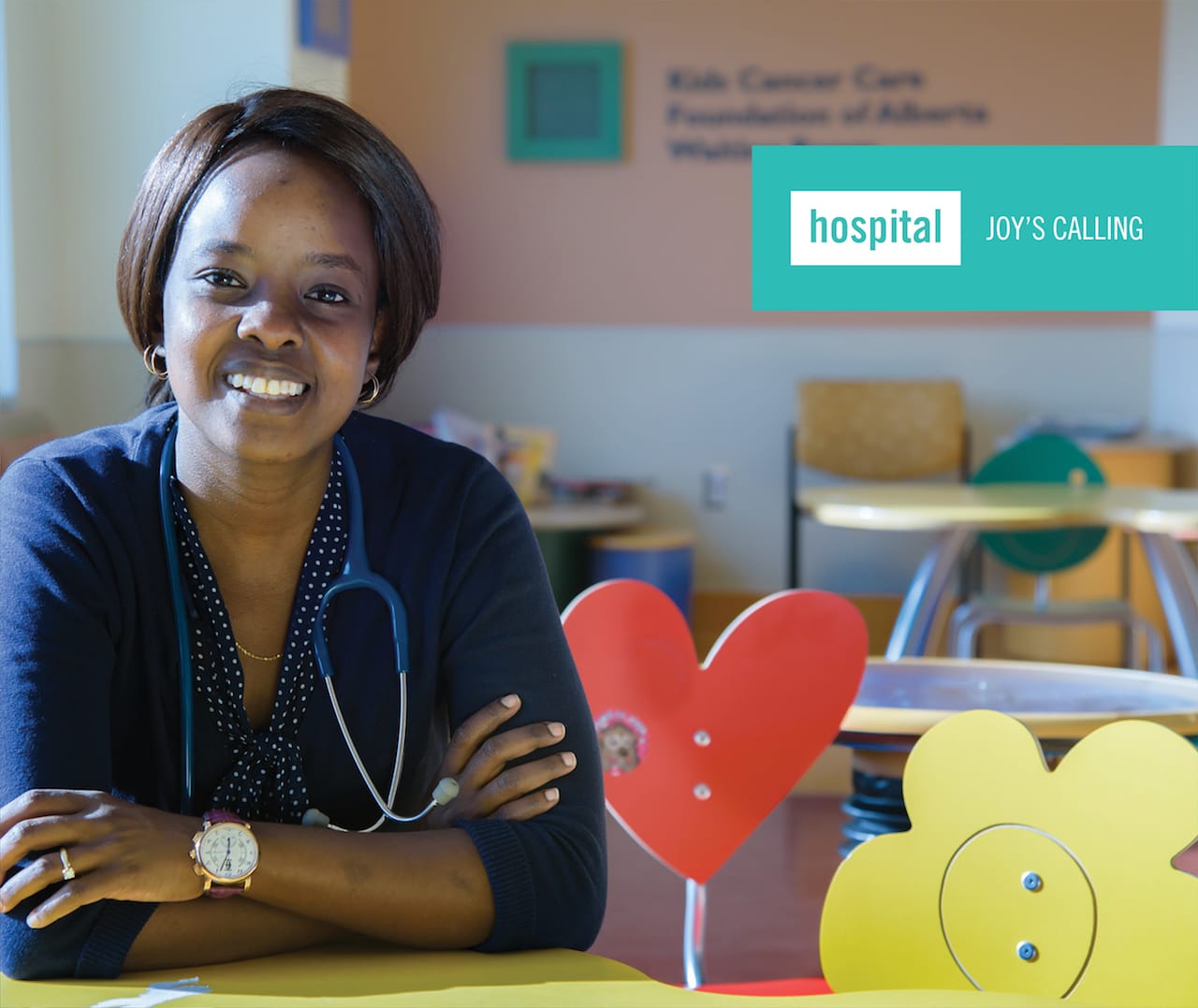
Joy’s Calling
“I have big dreams for pediatric oncology in Kenya. I hope to open a pediatric cancer facility one day, so children in Kenya and the East African region can expect similar care and treatment as children in North America.”~ Dr. Muthoni (Joy) Mburu
October 8, 2014 was an auspicious day for Kenyan pediatrician Dr. Muthoni (Joy) Mburu. It was the day she interviewed via teleconference with Drs. Strother and Steele at the Alberta Children’s Hospital for a residency position in pediatric hematology, oncology and transplantation.
Nine months later, Joy was leaving behind her fiancé and family—bound for Canada to become the first female doctor to train in the Kids Cancer Care International Residency Training Program at the Alberta Children’s Hospital.
Life for Joy would never be the same.
The first physician from Africa to be accepted into the program, Joy is experiencing a whole new world in pediatric cancer care. It’s a steep learning curve and she loves every minute of it.
But this isn’t her only challenge. Everything in Joy’s life is new. In addition to training in a highly specialized medical field, Joy is learning to navigate life in a foreign country.
“I came straight from my mother’s house when I came to Canada, because a single woman in Kenya lives with her parents until she is married,” Joy laughs. “So I am learning everything here—how to pay bills, clean house, cook, buy groceries and how to use the bus system. Everything, right down to prescriptions, is computerized here. This is also totally new to me. It has been a huge eye-opener for me. But I feel I am discovering myself. I am becoming my own person.”
In Nairobi, Joy worked as a doctor in a children’s oncology ward at the Kenyatta National Hospital. It was here that she found her calling in pediatric cancer.
Due to resource constraints, “As a doctor in Kenya, you are responsible for all aspects of a child’s cancer care, from filling the prescriptions, to mixing and administering the chemotherapies,” says Joy. “You spend so much time with the kids on the ward that you become very close to them.”
The mortality rate for children with cancer in Kenya is extremely high—about 90 per cent—and the need for children’s oncologists is great. The high mortality rate in Kenya can be attributed to late diagnosis.
“The parents often do not know better,” says Joy. “It’s too expensive to travel into the city, so they put it off until they know it is something serious. By that time, it is too late.”
After training here, Joy plans to return to Kenya to start the country’s first residency training program in children’s cancer at the Kenyatta National Hospital. She knows it’s a big, audacious goal—given the widespread poverty, corruption and bureaucracy in Kenya—but she is determined to bring her dream to life.
“The Alberta Children’s Hospital is an exemplary hospital,” says Joy. “I feel very privileged to work and learn here. I want to share this privilege with the children of my country. Kenya needs a pediatric oncologist who can teach others what they know because we can do so much with so little there. Even small changes will make a big difference in Kenya.”
Before taking on pediatric oncology in Kenya, however, Joy has another important item on her to-do list. She and her fiancé James Mwakazi, a human rights lawyer in Kenya, were recently engaged to be married. They have a wedding to plan.
“Life is happening,” Joy smiles, grateful to be swept into its powerful current.
Thank you! With your support, we are helping doctors from developing countries gain the expertise they need to make fundamental changes to childhood cancer care in their home countries.
